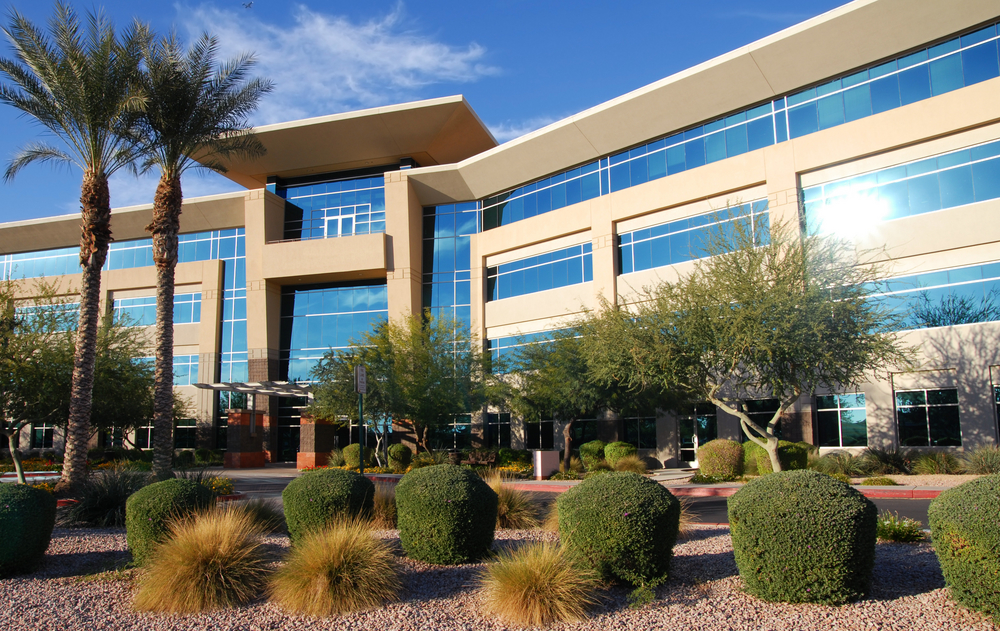Investigating a career in real estate with an eye toward commercial property
A career in real estate presents a universe of possibilities mixed with both obstacles and great rewards. This dynamic field offers aspiring professionals many routes to follow, going much beyond home sales. Focusing on commercial property one area in particular that promises significant development and rich rewards. Within the wide range of real estate, a job in commercial real estate is unique in terms of operations, responsibilities, and possible rewards.
Usually include office buildings, industrial structures, multi-family houses, retail spaces, farm land, and other kinds of property used for business reasons is commercial property. Starting a career in this field requires a strong knowledge of property management and its several complexities. A commercial real estate job becomes almost impossible without property management, which guarantees tenants are happy, rent is collected, and buildings are kept in good condition. A career in commercial real estate is an interesting path requiring a wide knowledge of market trends, territorial exploration, and great interpersonal skills.
The Draw of a Career in Commercial Real Estate: Advantages and Prospectuses
Professionals from many backgrounds are realizing that a career in commercial real estate offers many advantages and prospects. One of these benefits is the industry’s scale and breadth, which offers many industries to specialize in including office buildings, industrial property or retail spaces. Moreover, the industry gives the chance to directly influence trends and communities, thus giving the professional achievements one can get personal contentment.
Apart from these advantages, the commercial real estate industry offers several chances for the growth of talents. One important ability that can be developed and stretched to produce positive results is real estate marketing. Furthermore highly valued by the sector is lifelong learning, which keeps professionals alert and in touch with the newest industry trends and developments. Commercial real estate experts continue play a vital role in leading clients through property searches and transactions even with the emergence of digital tools like toggle navigation in the online search and purchase process, therefore underlining the continuing relevance of this sector. Furthermore, the possibilities for development and achievement are great since technology and networking tools let experts contact an audience never possible in past years.
Entering Property Management: Crucially Important in the Real Estate Industry
Within the field of commercial real estate, property management is clearly a major component. Often unappreciated but essential for the grand mechanism, it entails a wide spectrum of duties going much beyond property buying and selling. Property management is the supervision of daily activities of buildings and properties, so guaranteeing a seamless operation and experience for companies, building owners, and renters both.
Professionals that oversee properties are sometimes hired by brokerage companies; they may also be personally contracted. A residential real estate agent switching into commercial property management would discover fresh, exciting opportunities needing a different set of knowledge. Understanding the financial implications, engaging with tenant relationships, and being adept at contract negotiation are all crucial for success in this segment. The field of property management gives the commercial real estate sector breadth and diversity.
Learning Real Estate Marketing: Essential for Agents in Commercial Property
Effective marketing techniques have become rather useful tools in the ever changing fields of residential and commercial real estate. Indeed, effectively promoting a business property calls for using a combination of conventional and digital techniques, matched by thorough industry expertise. With commercial properties, where cap rates can significantly affect value, good marketing could be the secret not only to quickly close agreements but also to guarantee best returns for the agent as well as the selling party.
One bright field of real estate marketing mostly depends on networking events. These events provide great venues for realtors to present accessible commercial and residential properties, personally meeting with possible investors and purchasers. Moreover, they give real estate experts a forum where they may exchange ideas and newest industry trends, so improving their sphere of competence. Therefore, since real estate marketing develops client relationships, sales generation, and consistent business development, mastery of it is very necessary for success in the commercial property sector.
Focus of Commercial Property: From Industrial Land to Office Buildings
The career path of a real estate professional sometimes becomes limited to a particular concentration area, one of the interesting fields in the field of commercial property being the change from office buildings to industrial land. This feature calls for sophisticated knowledge of zoning rules, environmental requirements, property values changes, and broad market awareness. Professionals sometimes increase their sphere of influence by using conventional techniques like cold calling. This traditional method can definitely provide strong relationships that help a career in commercial real estate advance.
Dealing with industrial land calls for different set of abilities and more degree of expertise. Industrial sectors provide great opportunities from warehouses, manufacturing facilities, to land set aside for industrial development unlike conventional office environments. Working in commercial real estate with an eye toward such large-scale surroundings is demanding but exciting. Having the correct tools, a qualified real estate agent usually combines analytical ability with market knowledge to find, evaluate, and seize profitable investment prospects in this specific industry.
The Function of Brokerage Firms in the Commercial Real Estate Industry
The foundation of the commercial real estate ecosystem is brokerage companies, which also act as the vital link between lessees or possible investors and property owners. Unlike in the residential real estate market, a commercial real estate broker’s duties go well beyond purchasing and selling of properties. From identification and evaluation of the property to terms and closing the deal, they participate at several phases of the real estate transaction. Their clientele value their professional understanding of the local marketplaces and business sense greatly.
Additionally very important in determining the course of growth and development of a city or region are commercial real estate agents. Acting as property brokers promoting their clients’ interests, brokerage companies often closely work with architects, municipal planners, and developers. Brokers also handle property management chores, financial analysis, and market research. Through their professions, these experts help to create energetic, environmentally friendly, financially feasible communities. Their influence reaches the larger economic infrastructure in addition to specific transactions.
From Residential Real Estate Agent to Commercial Real Estate Broker
Including a shift in the work sphere usually calls for a careful awareness of the accompanying new challenges and expectations. Agents and brokers in the real estate sector, for example, can choose to veer from the residential market into a career in commercial real estate. This change usually suggests a broad awareness of commercial real estate marketing strategies, which vary greatly from residential methods because of the different character of these two industries.
Understanding complicated lease agreements, familiarizing oneself with commercial buildings, and being able to estimate the market for retail, office, and industrial assets call for particular knowledge and experience. As such, it becomes natural for moving agents to equip themselves with these particular abilities. Thus, the change from a residential agent to a commercial broker calls for major learning and unlearning, all the while guiding one’s professional growth inside the ever-changing real estate sector. Although difficult, this change provides a new viewpoint and more industry-wide possibilities, so encouraging professional development.
The Value of Ongoing Education for Those in Real Estate
Driven by their decision to enter the real estate industry, many people sincerely start their careers with a foundation based on the fundamentals of buying and selling property constructions. Still, the real estate market goes much beyond these basic ideas. As the property market’s horizon stretches, so does the need for real estate professionals to be continuously learning. Commercial real estate professionals are driven to handle this as a natural part of their path since both advantages and drawbacks of this continuous education call for attention.
The advantages lie in the increased knowledge base enhancing skills to conduct operations with greater efficiency and a broader understanding. This consequently greatly increases a person’s revenue potential and helps them to stand in a very crowded market. Constant learning gives realtors chances to specialize in particular markets, a coveted feature of the real estate industry. Concurrently, challenges present themselves with the commitment to a balanced approach to time management, ensuring that new learning does not disrupt existing work obligations. Hence, an informed approach towards the need for continuing education, considering its complexities and benefits alike, is paramount for success.
Networking Events and Cold Calling: Essential for Commercial Realty Success
Engaging in networking events holds a paramount place in the overall trajectory of success in the commercial real estate field. Such events open up multiple avenues for expanding business contacts, acquiring potential clients, and fostering relationships with individuals who hold the potential to influence one’s professional journey. Furthermore, these events often serve as platforms that facilitate the exchange of crucial market insights, trends, and investment opportunities that can give an edge to a commercial real estate professional.
Cold calling, despite being eventful in nature, is another fundamental tool that helps in laying down a robust foundation for a prosperous career in commercial real estate. It is a rigorous, yet rewarding exercise in persistence and communication, as it entails reaching out to potential clients, tenants, or property owners with the aim to initiate business transactions. Cold calling enables an agent to showcase their expertise, create a strong impression, and generate leads, all of which are indispensable in crafting and sustaining a successful career in commercial real estate.

















